| T O P I C R E V I E W |
| GinnyBelle |
Posted - Aug 09 2020 : 2:22:45 PM
Lalawethika ("He Makes a Loud Noise" or "Noise Maker") was born in early 1775 in a Shawnee village in Western Ohio. His father was killed by a British soldier before he was born, and his mother abandoned him and his siblings, one of whom was his older brother, Tecumseh. He grew up isolated and depressed. He was not a natural warrior nor a hunter and turned instead to alcohol.
In 1805, Lalawethika fell into a drunken stupor and was believed to be dead. Instead, he woke in the middle of his burial preparations and claimed to have had visions of two different worlds. One filled with ample bounties for ones who followed the old ways, and one filled with pain and suffering for ones who shunned traditional tribal ways. He gave up alcohol and built his reputation as a religious leader, first among the Shawnee, then among other tribes. He changed his name to Tenskwatawa (meaning "open door"), and worked closely with his brother Tecumseh to form a confederation of native American tribes that would resist the influence of white settlers.
The newly christened Tenskwatawa, also known as the Prophet, and Tecumseh moved west and established a very sizeable village along the banks of the Tippecanoe and Wabash rivers near present day Lafayette, IN. There, many tribes gathered. It became a spiritual and cultural hub among the predominantly Algonquin speaking tribes. The large numbers that gathered prompted the early white settlers in the area to fear that Tecumseh was gathering an army to destroy their settlements.
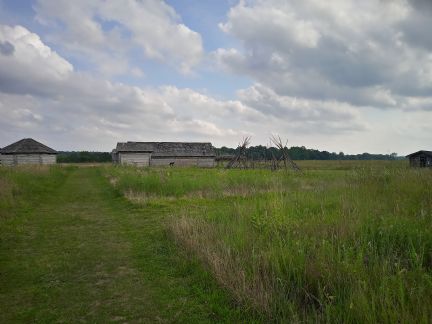
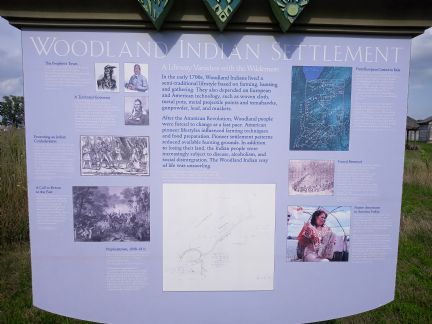
In 1811, Tecumseh met with William Henry Harrison to negotiate. Those negotiations failed, and Tecumseh left Tenskwatawa in charge of Prophetstown when he went south to try and strengthen his alliances with more tribes. He left orders to avoid conflict with white soldiers if possible. Harrison, meanwhile, decided to strike first and began marching towards Prophetstown from Vincennes. Tenskwatawa ignored his brother's commands and prepared to take action against the advancing troops. On November 6, 1811, in an effort to buy time in hopes of more warriors joining him, he sent a message to Harrison requesting a meeting. Harrison agreed to meet the following day and set up his camp about a mile from Prophetstown.
Sometime in the night, Tenskwatawa decided that killing Harrison in his bed was the only way to avoid a battle. He convinced his force of warriors that he would sing and make powerful magic that would make them untouchable to white man's bullets. In the early hours of November 7th, the native forces attacked. Tenskwatawa remained out of range of the army's bullets, instead chanting his battle songs from a nearby rock overlook.

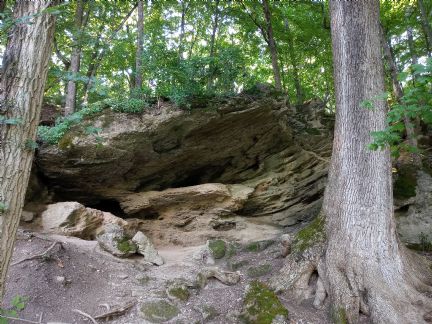
After the two hour battle of Tippecanoe, the native forces retreated and abandoned Prophetstown. Though the loss suffered there did not end the native resistance, it did lead to Tenskwatawa's loss of influence among he and Tecumseh's followers. They retreated to Canada, where Tecumseh was killed in battle in 1813. Tenskwatawa, who was watching from behind the British lines, fled the American advance and remained an exile in Canada until 1824.
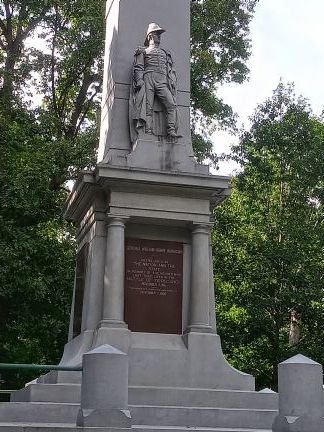
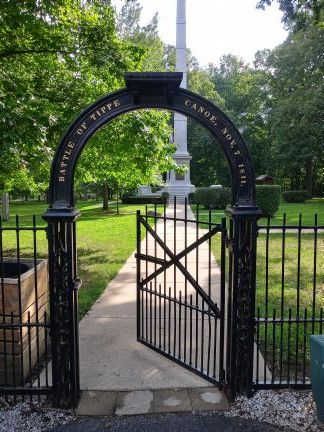
In 1824, at the request of the governor of the Michigan territories, the aging Prophet returned to the US to assist the federal government in its attempts to remove the Shawnee further west to reservation lands in Kansas. He hoped that by leading them, he would regain influence within the tribe. His attempts failed, however, and he died in obscurity in 1836 in present day Kansas City. |
| 4 L A T E S T R E P L I E S (Newest First) |
| MaryJanesNiece |
Posted - Aug 11 2020 : 1:28:48 PM
Very interesting Hannah. Thank you for sharing. This is all new information to me. Congratulations on your badge!
Krista |
| GinnyBelle |
Posted - Aug 09 2020 : 4:27:53 PM
Sara, thank you! He is often overshadowed by his older brother Tecumseh, but I thought his story was interesting as well!
Winnie, I know! I grew up over on the other side of the state and knew little of the story. But when we moved over here to the Lafayette area several years ago, I learned quite a bit! I have visited the Battlefield Park, where the Battle of Tippecanoe was fought, many times. Also Prophetstown State Park is very close. Tomorrow, my husband and I are going out there to take pictures and also hike up to Prophets Rock, if the weather is nice.
Farmgirl #6994
Sunshine Mixed With A Little Hurricane |
| Red Tractor Girl |
Posted - Aug 09 2020 : 4:03:03 PM
Hannah, this is quite the story!! How did you come to hear this? It is interesting and a wonderful piece of local history.
Winnie #3109
Red Tractor Girl
Farm Sister of the Year 2014-2015
FGOTM- October 2018 |
| YellowRose |
Posted - Aug 09 2020 : 3:42:48 PM
Hannah you did a wonderful job telling Tenskwatawa's story. I remember hearing a little of his story but not in such detail.
Sara~~~ FarmGirl Sister #6034 8/25/14
FarmGirl of the Month Sept 2015. & Feb 2019
Lord put your arm around my shoulders & your hand over my mouth.
|
|
|